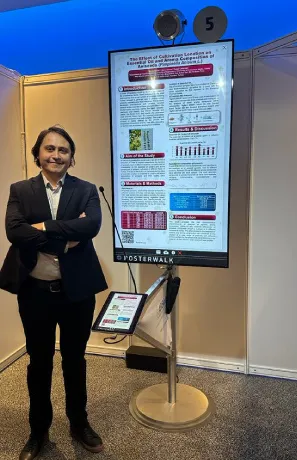- Home
- News About Us
- Nothing Fails Like Success
Nothing Fails Like Success
This paradox is more of a warning rather than a learning and it means more or less:
‘’Don’t be insulated by your success or regard your success as an entitlement’’.
There are two sides to this warning: one corporate and one personal. Jim Collins, the author / co-author of many leadership books like Good To Great and Built To Last already covered the corporate side in his book ‘’How The Mighty Fall’’.
Here is a short introduction of Jim Collins.
And an article by him that summarizes ‘’How The Mighty Fall’’
Based on his research, he outlines the anatomy of the fall of once successful companies. In all of them complacency and arrogance born out of over-confidence are the usual suspects. Collins argues that to avoid this decline, the ability to adhere to the principles that brought success with discipline and stimulating progress with clever adaptations and modifications will be of utmost importance.
‘’Great companies foster a productive tension between continuity and change’’ Jim Collins
I believe the same holds true for our own personal careers. Just like companies, individuals should also pay attention to this ‘’success being the driver of one’s failures’’ warning.
We have to learn how to think and act with humility. In the Jim Collins book, ‘’Good to Great’’,
Level 5 leaders are described as ‘’the ones who look out of the window to credit others for success and conversely look into the mirror to take responsibility when things don’t go as planned’’
We also need to understand WHY we did what we did to succeed and in what conditions these actions will no longer work.
Anyone can fall and both the decline and the recovery are mostly in our own hands. Still though, how can we realize the early signs of decline in our own career paths? What are the markers that we should pay attention to?
- If you focus more on your improvement areas and forget about getting better at your strengths,
- If you celebrate actions and not results,
- If your learning curve is not as steep as it were at the beginning of your career,
- If you believe that your success comes from your superior qualities and you neglect the role that your environment, the eco-system that you live in play in your achievements, then the bells might be tolling for you.
‘’ Like inquisitive scientists, the best corporate leaders we’ve researched remain students of their work, relentlessly asking questions – why, why, why? – and have incurable compulsion to vacuum the brains of the people they meet.’’ Jim Collins
In short, the learning I noted down in my 17th year as a corporate citizen was:
‘’If you don’t change you become irrelevant. If you change constantly and without rationale, you again become irrelevant. It is just like in the lyrics of a country song; in a card game, you need to know what to keep and what to throw away; then every hand will be a winner’’






